Writing A Will
A will dictates who will receive your assets after your death. Even if you don’t think you have significant assets, most people own something of value—whether it’s personal belongings, savings, or real estate. Without a will, a court will decide who inherits your estate, often through a lengthy and expensive probate process. Creating a simple will can save time, money, and potential disputes for your loved ones.
What Assets Pass Through A Will?
Assets are distributed in three main ways:
1. Beneficiary Designations
Some assets pass directly to your heirs through beneficiary designations, including:
- Retirement plans (401(k), IRA)
- Life insurance policies
- Annuities
- Bank or brokerage accounts with payable-on-death (POD) or transfer-on-death (TOD) designations
These assets bypass your will entirely if beneficiaries are named.
2. Joint Ownership with Rights of Survivorship
Assets jointly titled with rights of survivorship, such as:
- Joint bank accounts
- Jointly owned real estate
These assets transfer directly to the co-owner upon your death.
3. Assets Passing Through a Will
Assets without beneficiary designations or joint titling pass through your will, including:
- Individually owned checking or savings accounts
- Personal property (e.g., furniture, jewelry)
- Real estate owned solely in your name
These assets go through probate to ensure proper distribution.
How Do I Create A Will?
If you have very few assets and no underage heirs, you may be able to use software to create a will. If you decide to do this, it is very important to have as many assets as possible to pass to your heirs by beneficiary designation or titling. If you die with a will you created on the internet and have assets that must go through probate, it may be difficult to find an attorney to help at a reasonable cost – they generally don’t like to deal with documents they did not create.
Ideally, you should seek an attorney to create your will. If you do not have enough money to pay an attorney, there are free legal services available to those who qualify.
What Should a Will Include?
A will typically contains these key components:
- Executor or personal representative: The person responsible for ensuring your assets are distributed according to your wishes. Choose someone organized and reliable, and name a backup in case they cannot serve.
- Trustee (if applicable): If you’re leaving assets in trust (e.g., for minors or individuals with special needs), appoint a trustee to manage them. Select someone trustworthy and good with finances, and name a backup.
- Guardians for your children: If you have children under 18, designate a guardian to care for them in the event of your death. Name a backup guardian as well.
- Beneficiaries of your assets: Specify who will receive your assets, whether individuals, trusts, or charities.
What Do I Do With My Will Once It Is Completed?
It is good to share the contents of your will with your heirs. This will reduce the chance of family fights after you have died and provide everyone with clear instructions on how you want your assets to be distributed.
Your original will should be kept with your attorney or in a very safe place. Make certain your executor knows the location of your will, as they will need the original copy. By having everything well organized, you will reduce the time and cost of distributing your assets to your heirs.
Final Thoughts
Creating a will is one of the most important steps in planning your estate. It ensures your assets are distributed according to your wishes, protects your loved ones, and can save time, money, and stress. Start the process today, whether through a trusted attorney or a simple software solution.



